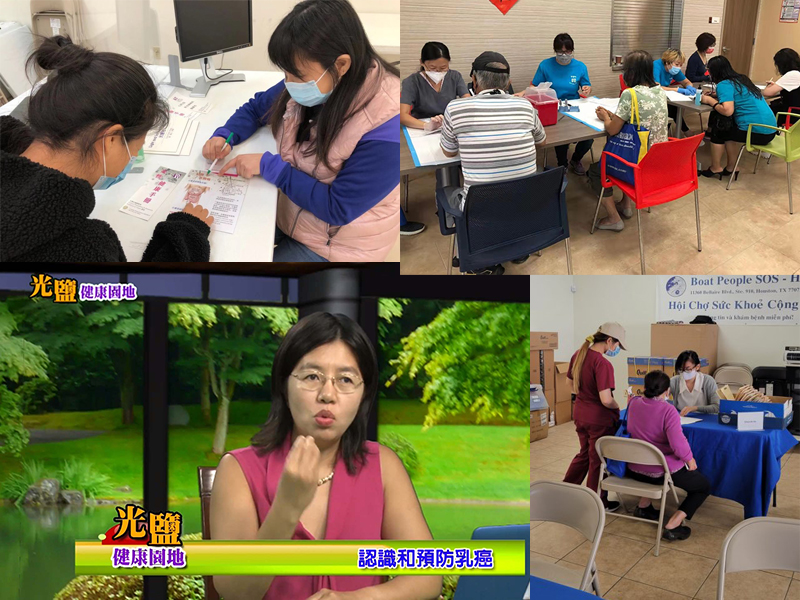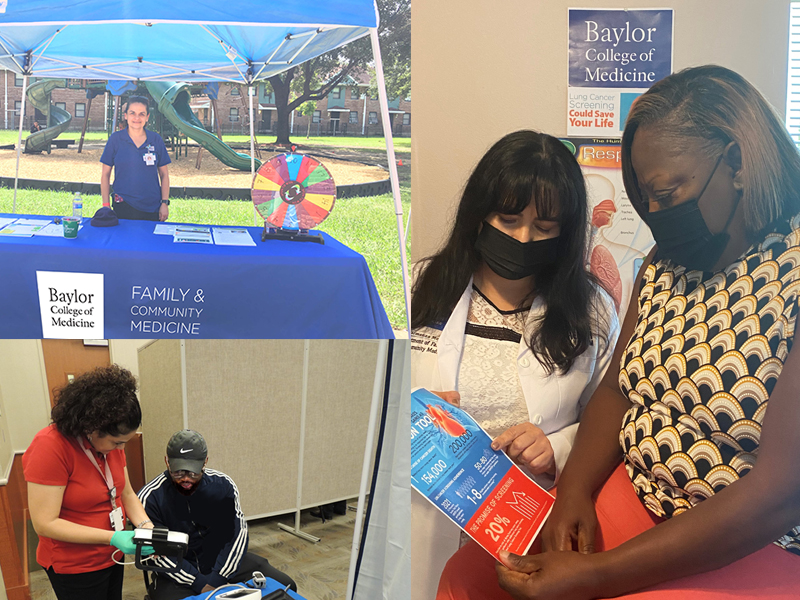Building on the momentum launched by Texas voters 14 years ago and reauthorized by a decisive statewide vote in November 2019, CPRIT and its grantees advanced innovative research and prevention efforts across the state. Fiscal year 2021 marked a year of milestones, including its 250th CPRIT Scholar recruited to Texas, $300 million invested in prevention services, and the first CPRIT-funded drug approval.

CPRIT Grants: Investing in Texas
CPRIT strives to generate the greatest possible benefit for Texans when awarding grants. The agency supports academic research, product development, and prevention projects that show great scientific promise, meet critical needs, and advance the state’s life science ecosystem. CPRIT’s investments help grantees build novel facilities, achieve scientific breakthroughs, reach clinical milestones, and detect cancers and cancer precursors earlier.
Over the last eleven years, CPRIT has invested $2.86 billion in Texas’ universities, enterprises, and organizations. CPRIT supports the cancer continuum from discovery to delivery, awarding more than 1,679 grants to academic research, product development, and prevention projects across Texas in 2021.
$241.9 million in Grant Funds Awarded and 107 Grants Approved in 2021
79.27 %
11.39 %
9.34 %
27 Organizations Receiving Grants
Health Science Center
at El Paso
at Houston
at San Antonio
Cancer Center
at Galveston
Medical Center
at Fort Worth
Notable Firsts

Texas Southern University Receives First Prevention Award
The Texas Southern University Breast Cancer Screening and Prevention Center received a $1 million CPRIT grant (PP210049) in August 2021 to provide increased access to breast cancer screening for first time or rarely screened, uninsured or underinsured African American women across five counties.

Texas Cancer Registry selected to join the Seer Registry
In May 2021, the Texas Cancer Registry was awarded a new federal contract from the National Cancer Institute Surveillance, Epidemiology and End Results (SEER) Program. The Texas Cancer Registry was one of only three states selected as a new NCI SEER-designated cancer registry, and will receive nearly $9 million over the next seven years.

First CPRIT-Funded Core Facility at Rice University
The Genetic Design and Engineering Center core facility at Rice, led by CPRIT Scholar Dr. Gang Bao, received a $4 million CPRIT grant in August 2021 (RP210116). The new resource will allow Texas researchers to deliver new therapies to patients at a much faster rate than is currently possible. This DNA manufacturing facility will be the first of its kind in Texas.
UTRGV Receives First CPRIT Award
CPRIT awarded The University of Texas Rio Grande Valley a $2.5 million grant (RP210180) to establish its Integrated Cancer Research Core to support cancer researchers at its School of Medicine. In the video, ICRC director Dr. Subhash Chauhan describes the importance of access to state-of-the-art research technologies to investigators in the Rio Grande Valley and South Texas.

SMU Receives First CPRIT Award
In August 2021, CPRIT approved a $250,000 High-Impact/High Risk Award (RP210068) to Southern Methodist University’s Zhihao Wu to study a promising novel approach to treat glioblastoma, an aggressive brain cancer without a cure.
CPRIT Awards First Texas Regional Excellence in Cancer (TREC) Awards
CPRIT’s first two TREC grants, awarded to The University of Texas at El Paso (RP210153) and the Texas Tech University Health Sciences Center
(RP210154), underscore CPRIT’s commitment to investing in innovative cancer research in regions of Texas without a NCI-designated cancer center.
Research Findings and Grantee Highlights in 2021
CPRIT’s $2.86 billion investment in 1,679 of the best ideas in cancer research, product development, and prevention has enhanced Texas’ role in the global fight against cancer. A snapshot of some notable research findings reported in fiscal year 2021, as well as other important milestones, awards and prestigious appointments, and prevention outreach, are shown below. Click on "View or Download All" to see all the information reported for the fiscal year.
View or Download All
View or Download All
View or Download All
View or Download All
CPRIT Welcomes Michelle M. Le Beau, Ph.D.,
as Chief Scientific Officer
CPRIT CEO Wayne Roberts appointed Dr. Michelle Le Beau to head CPRIT’s academic research program on September 14, 2021. Before joining CPRIT, Dr. Le Beau led the University of Chicago Medicine Comprehensive Cancer Center for 17 years. She is a distinguished cancer researcher, particularly in the study and treatment of hematological malignancies. Dr. Le Beau follows Dr. Jim Willson, who served as CPRIT’s Chief Scientific Officer since 2016. At Dr. Willson’s last Oversight Committee meeting in August 2021, several grantees, Oversight Committee members, and CPRIT staff honored his work in a video tribute. In addition to Dr. Le Beau, CPRIT added two new members to its executive staff – Chief Strategic Initiatives and Intellectual Property Officer Tracey Davies and Chief Due Diligence and Patent Officer Ken Smith.



State Auditor’s Office Ratifies CPRIT’s Grant Process
The State Auditor’s Office completed a comprehensive audit of CPRIT’s grant management functions in September 2021, concluding that CPRIT has processes and related controls in place to help ensure that CPRIT reviews, awards, and monitors grants in accordance with state law, rules, and CPRIT policies and procedures.
2021 Milestones
CPRIT and its grantees witnessed several impressive highpoints in 2021. In the fiscal year that ended August 31, 2021, CPRIT recruited its 250th CPRIT Scholar in Cancer Research to Texas and awarded grants that marked $300 million in support of evidence-based prevention, detection, and early intervention services across Texas over the past 11 years. Another landmark achieved in 2021 is the first CPRIT-funded drug to receive FDA approval.
CPRIT Recruits 250th CPRIT Scholar
Beginning with the very first grant approved by the Oversight Committee in November 2009, the CPRIT Scholar in Cancer Research grant program helps academic institutions attract world-class scientists to Texas. Less than 12 years later, CPRIT met a milestone in August 2021 by successfully recruiting its 250th CPRIT Scholar to Texas.
This signature program gives the state an undisputed competitive edge in recruiting the most innovative minds in cancer research. The outstanding scientists, at all career stages, enhance programs of scientific excellence, advance cancer research, and promote economic development throughout the state. As of August 31, 2021, there are now 254 CPRIT Scholars at 21 institutions throughout the state. We feature some of 67 women recruited to Texas through the CPRIT Scholar program.
Featured Recruits
CPRIT Marks $300 Million Dedicated to Cancer Prevention
CPRIT awards ten percent of its grant funds every year to programs throughout the state that seek to prevent cancer or detect it early in medically underserved patient populations and rural parts of Texas. In 2021, CPRIT’s investment in preventing cancer reached $300 million. Two examples of the 258 innovative prevention projects CPRIT funded since 2010 are shown below.

Light and Salt Association, PP120100, PP160036, PP200075
Asian Americans are the fastest growing racial/ethnic groups in Texas and cancer is the leading cause of death among Asian Americans. The Light and Salt Association provides quality health education, cancer screening, and survivorship support to Chinese, Vietnamese, Korean and Filipino families in Houston and Austin. With CPRIT grant funding, the Light and Salt Association tackles cancer disparities in Asian American communities, focusing on colon, breast, cervical and liver cancer.
The collage features several of the prevention activities by the Light and Salt Association made possible with CPRIT funding. Starting at top left, these activities include: one-on-one education on women health for Houston Chinese community; Hepatitis C screening at the Chinese Community Center in Houston; Dr. Putao Cen talking about cancer prevention on a local Chinese TV channel; and mammogram screening for the Houston Vietnamese community.
Dr. Roger Zoorob, Baylor College of Medicine PP180016 PP210044
More people die of lung cancer than any other cancer in the U.S., accounting for 1 in 4 cancer deaths. Harris County has more lung cancer-related deaths among people over 35 years old than any other county in Texas. Dr. Zoorob’s CPRIT-funded program uses a newly approved technology to detect early-stage lung cancer among predominantly underserved populations within Harris County. By combining the screening with smoking cessation services, the project is increasing the number of people surviving lung cancer and preventing future cases. Based on the success of Dr. Zoorob’s project, CPRIT awarded a $2 million grant in August 2021 to expand the project to Polk and San Jacinto counties. Both are rural, medically underserved counties hard-hit by lung cancer.

First CPRIT-Funded Drug Approved to Treat Patients

On August 13, 2021, the U.S. Food and Drug Administration approved a first-in-kind drug called belzutifan as a treatment for hereditary kidney cancer, marking an exciting milestone as the first CPRIT-funded drug to receive regulatory approval. Belzutifan treats cancers associated with a rare genetic condition called Van Hippel-Lindau disease, including renal cell carcinoma, central nervous system hemangioblastomas, and pancreatic neuroendocrine tumors. The drug is also in clinical trials for solid tumors, biliary cancer, colorectal cancer, and liver cancer.
Product development is a lengthy process. After discovery, it takes a new cancer drug 10 – 15 years to reach the market. In 2010, CPRIT awarded a $3.2 million Product Development Research award (R1009) to Peloton Therapeutics for developing treatments based on discoveries made by researchers at The University of Texas Southwestern Medical Center. After acquiring Peloton for $2.2 billion in 2019, Merck & Co. Inc. continued clinical development of belzutifan, sponsoring the drug through FDA approval.
CPRIT’s investment in the initial company work that led to this breakthrough drug has not only supported Texas’ fight against cancer but has also bolstered the oncology sector of the state’s life science ecosystem.










